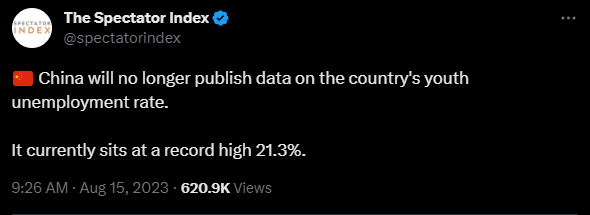To clarify, I don't believe in the surface level propaganda thrown in China's way about "1984 dystopian society," "Mao killed 60 million people," "Xinjiang concentration camps" or things like that.
I'm curious about a few negative factors of China that have become widespread knowledge over the past decade or so by even the politically literate audience, and I want to learn how accurate these things are, how prevalent they are in today's society in China, and how much it would impact the day to day life of someone living in China.
-
Quality control, I have read stories about Chinese factories producing guns, steel, industrial goods, consumer goods, food products, far below acceptable or safe standards, leading to construction/infrastructure failure and severe health complications. There are also claims that smaller restaurants in China today still sometimes use very low quality ingredients that can result in serious health issues. How much of an issue is this?
-
Population issue. The Chinese population trend is going in a unfavorable direction right now, and there are reports of young people not wanting to have children because of cultural and cost reasons. How much of an issue is this, and will China end up like Korea and Japan in another decade or two?
-
Unemployment, it is a fact right now that Chinese people have a 20% unemployment issue due to an abundance of university graduates without sufficient jobs to match this supply. And this has caused internal competition to swell to unreasonable standards leading some people to straight up give up on their careers and become full time neets. Are there any positive trends or actions to resolve this issue?
-
Education. The education system sounds terrifying in China right now, children as young as elementary schoolers having to sleep only 6 hours a night to finish their homework from school and tutoring services. I have also read that after the government banned tutoring of core classroom subjects, illegal tutoring services have become a thing. I would laugh at how this would be the most asian issue ever if I wasn't so horrified by the situation. Is there any government effort to resolve this right now?
-
Nepotism. From what I have heard and read, using connections to obtain positions and resources in China is still very common. How bad is this, and are there any reforms or policies tackling it?
-
Mannerisms and emotional intelligence of the average person. There are frequent complaints about Chinese people being horrible tourists, being extremely rude, having the emotional maturity of a donut until at least the age of 30, and also taking advantage of anything free to disgusting levels (I have personally seen old Chinese ladies take out a container and fill it with ketchup from a restaurant where the condiments are self served). I understand the reasoning behind this, China in it's current iteration is a relatively new country, and the education received by different generations varies massively in quality, with only really Gen Z on average obtaining a level of education that is on par with western populations. I just want to ask how bad this is in day to day life, and if it is tolerable.
Thanks for reading my somewhat long post, I'd appreciate any response, you don't have to respond to all of my points, any point would be fine. I want to have a positive impression of China but these points are really bugging me right now.


